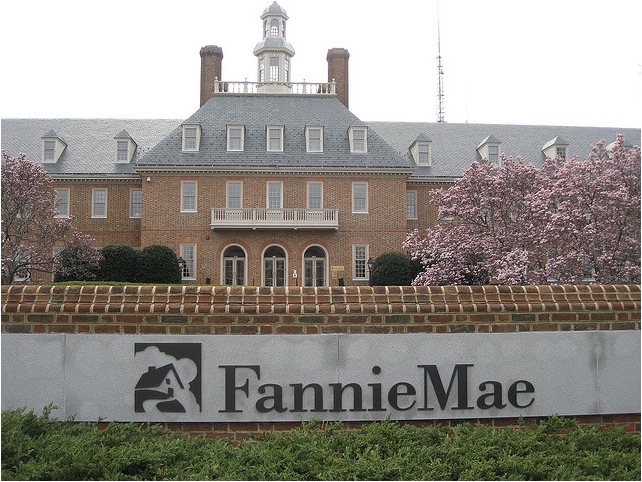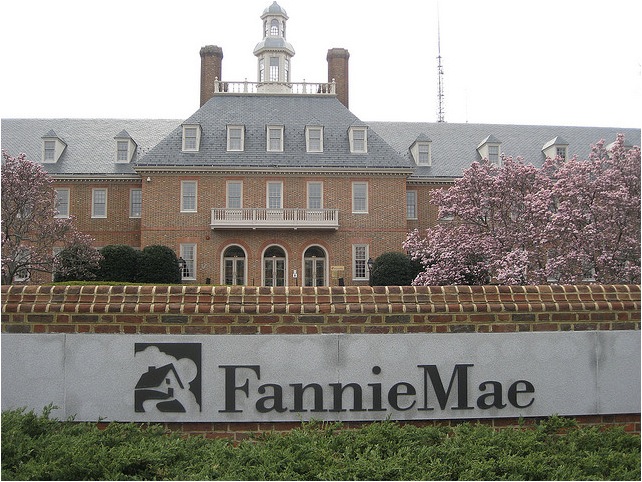
The headquarters of government housing corporation Fannie Mae.
When Bill Gross, who leads the planet’s biggest bond fund, Pacific Investment Management Co. (PIMCO), has something to say, people in finance listen up. And you can bet that the major players in the housing industry were listening closely today during Gross’ remarks at the Treasury Department’s “Future of Housing Finance” conference. On the subject how to fix the financial system backing the mortgage markets, including the fate of government housing giants Fannie Mae and Freddie Mac, Gross was unequivocal: There should be “full nationalization” of housing finance, he said today. “Government is part of our future. We need a government balance sheet. To suggest that the private market come back in is simply impractical. It won’t work.”
Gross’ opinion was, not surprisingly, at odds with some of his fellow speakers at the Treasury conference. More conservative experts advocated getting government out of housing finance altogether, and abolishing Fannie and Freddie, which, combined with Ginnie Mae, currently backstop nearly 90 percent of the mortgages issued in the first half of 2010. With that in mind, you’ve got to question the privatization hawks here: After all, won’t eliminating Fannie and Freddie and leaving the private market to do the job kill the mortgage market?
More moderate voices at today’s event included Treasury Secretary Tim Geithner and Department of Housing and Urban Development Secretary Shaun Donovan. Both secretaries reassured investors and the public that government would continue to support the housing markets—but not indefinitely. “The government’s footprint in the housing market needs to be smaller than it is today, where FHA and the GSEs collectively guarantee more than 90 percent of all mortgages,” Donovan said. Geithner added that fixing housing finance isn’t a matter of nationalization or privatization, but determining “how much” of a role the government should play in the future.
As to that question, today’s event hasn’t offered too many answers. And with Treasury not issuing definite recommendations on what to do with Fannie and Freddie and housing finance as a whole until January, it looks like we’ll have to settle with generalizations, some wildly divergent opinions, and more partisan bickering for a bit longer.










